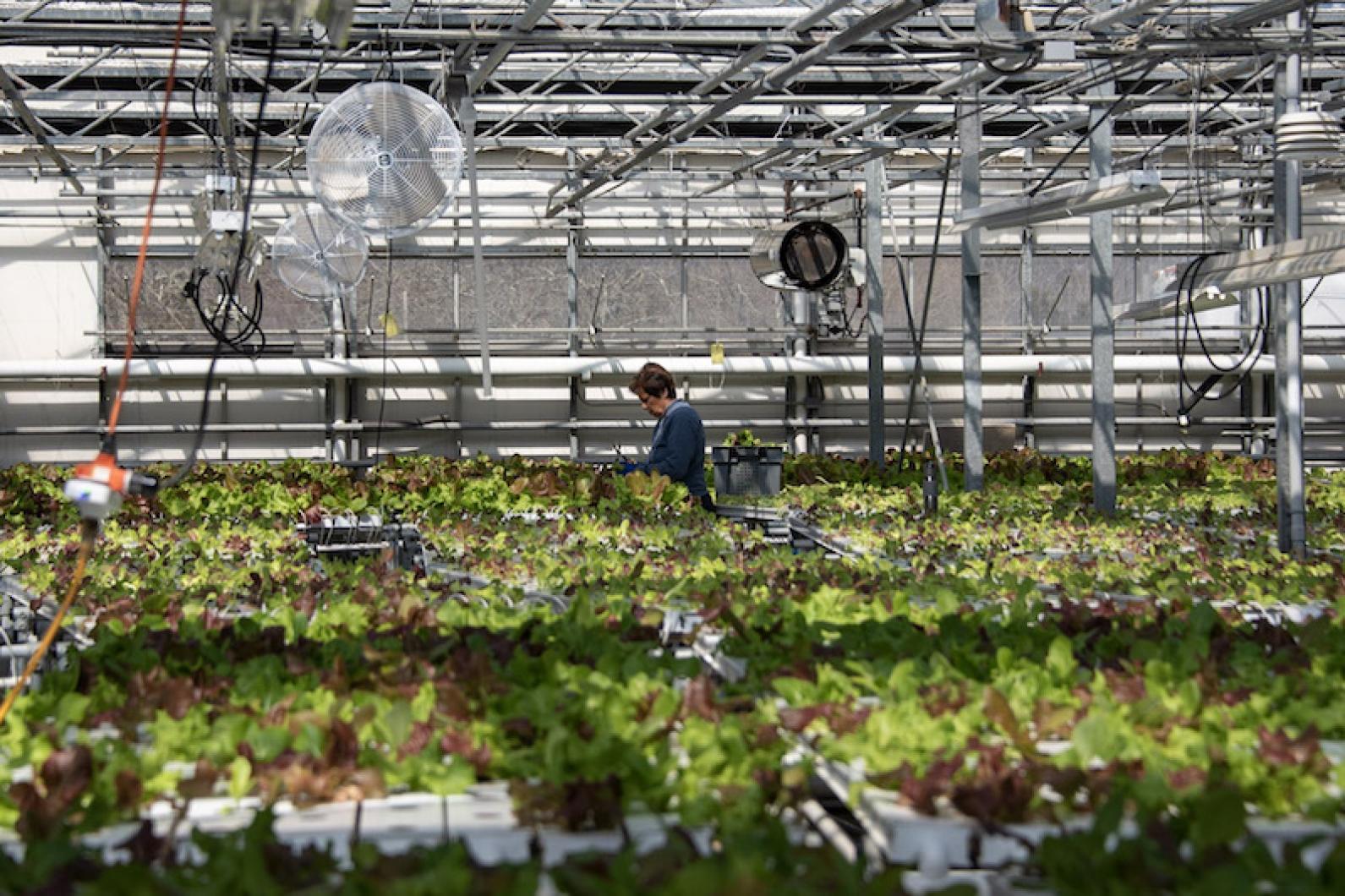As the coronavirus pandemic intensifies, Island agencies and nonprofits are finding new ways to reach the people they serve — without coming anywhere near them.
Martha’s Vineyard public schools began distributing grab and go lunches at school campuses Wednesday, adding an online pre-order system this week. While social distancing remains the rule, the lunch pickups allow for a point of connection between schools and families at a time when most community connections are taking place online.
On Monday, Edgartown School principal Anne Fligor beamed as she greeted students riding in the back seats of cars and trucks that paused outside the school entrance.
“It’s great to see the kids again,” she said. “I enjoy this. I really do. I like seeing the people.”
As each vehicle rolled to a stop, school resource officer Stephanie Immelt radioed the family’s name to the kitchen while Ms. Fligor headed back to pick the orders up, each in a double-handled paper bag, and deliver them to the curbside.
Special education teacher Diane Smadbeck, who was handing out work-at-home packets for her students, also lent a hand when the lunch traffic piled up. All three women wore blue nitrile gloves.
“I’d rather be with the kids, for sure,” Ms. Smadbeck said.
Curbside pickup is also coming to Serving Hands, the monthly food distribution based out of the parish house of the First Baptist Church in Vineyard Haven. To further limit the risk of bringing groups of Islanders to a single place, coordinator Alicia Nicholson said, the distributions will take place at three additional locations as well.
“Volunteers are going to the Edgartown library, the West Tisbury library and the Community Services parking lot,” Ms. Nicholson said.
This month’s bags of groceries are being distributed at the four sites Friday from 1:30 p.m. until 3:30 p.m., or when supplies run out. Ms. Nicholson said she expects demand to be significantly higher than last month, when 100 people picked up groceries, another 35 received deliveries and some two dozen more bags were sent to the Wampanoag tribe in Aquinnah.
“I have no idea how many people are going to show up,” she said Monday. “In the past week I’ve had many calls from people who have never used it before, because they are out of work. We are up to about 50 deliveries at this point.”
Ms. Nicholson said Serving Hands plans to use the same multi-site, curbside pickup method for its Family to Family distribution of Easter groceries on Good Friday, April 10.
Rebecca Haag, executive director of Island Grown Initiative, said she expects to see the demand for free and low-cost groceries continue to increase over the coming weeks and months.
With schools closed, Ms. Haag said, most of the nonprofit’s Island Grown Schools staff are now preparing for spring planting in a greenhouse that’s usually closed this time of year. Island Grown is also adding more acres to its regenerative agriculture pilot, to produce more food for Islanders in need.
“Even if this virus starts to peter out a little bit in June, a lot of people will be facing economic hardship,” Ms. Haag said.
Isolation is the challenge already facing more than two dozen vulnerable Island seniors, who until the coronavirus shutdown were gathering daily for music, a meal and socializing in the supportive day program at the Martha’s Vineyard Center for Living in Vineyard Haven.
“We’re calling everyone,” said program director Mary Holmes, who with Center for Living executive director Leslie Clapp has been alternating days at the center even though it is closed to clients.
Governor Baker’s most recent order does not classify day programs as essential services, Ms. Holmes said, but Center for Living staff will continue calling clients from personal phones.
“We’re staying connected with our families,” she said. “Many of our elders have land lines, which is great.”
As to what they talk about, Ms. Holmes said the coronavirus is not a recommended topic.
“It’s hard when people have some cognitive impairment,” she said. “It’s a little disorienting for people, so we try to find other things to talk about.”
The 25 seniors in her program are rich in experiences that other Islanders could learn from, Ms. Holmes said.
“Many have lived through the depression and the second World War,” she said. “They would have grown up with an understanding of conservation and working together as a community. I think they get that more than we do.”
While the center is closed, Ms. Holmes said she and the rest of the staff are available to advise and help any Island family with a member who is suffering from disability or cognitive decline. Her number and email, and Ms. Clapp’s, are posted on the Center for Living website.
Like many other Islanders, Ms. Holmes is also looking to the internet to help reach her clients. “We’re doing the Zoom thing,” she said, referring to the popular Internet conferencing tool. “We’re going to test out a program for our clients this week and try and get everybody online as much as we can. Some have family or caregivers who can help.
“I guess we’re like everyone else,” she said. “We’re trying to figure it out.”
Islanders in good health who wish to volunteer for local services during the coronavirus pandemic can register on the Martha’s Vineyard Community Services website.







Comments (3)
Comments
Comment policy »